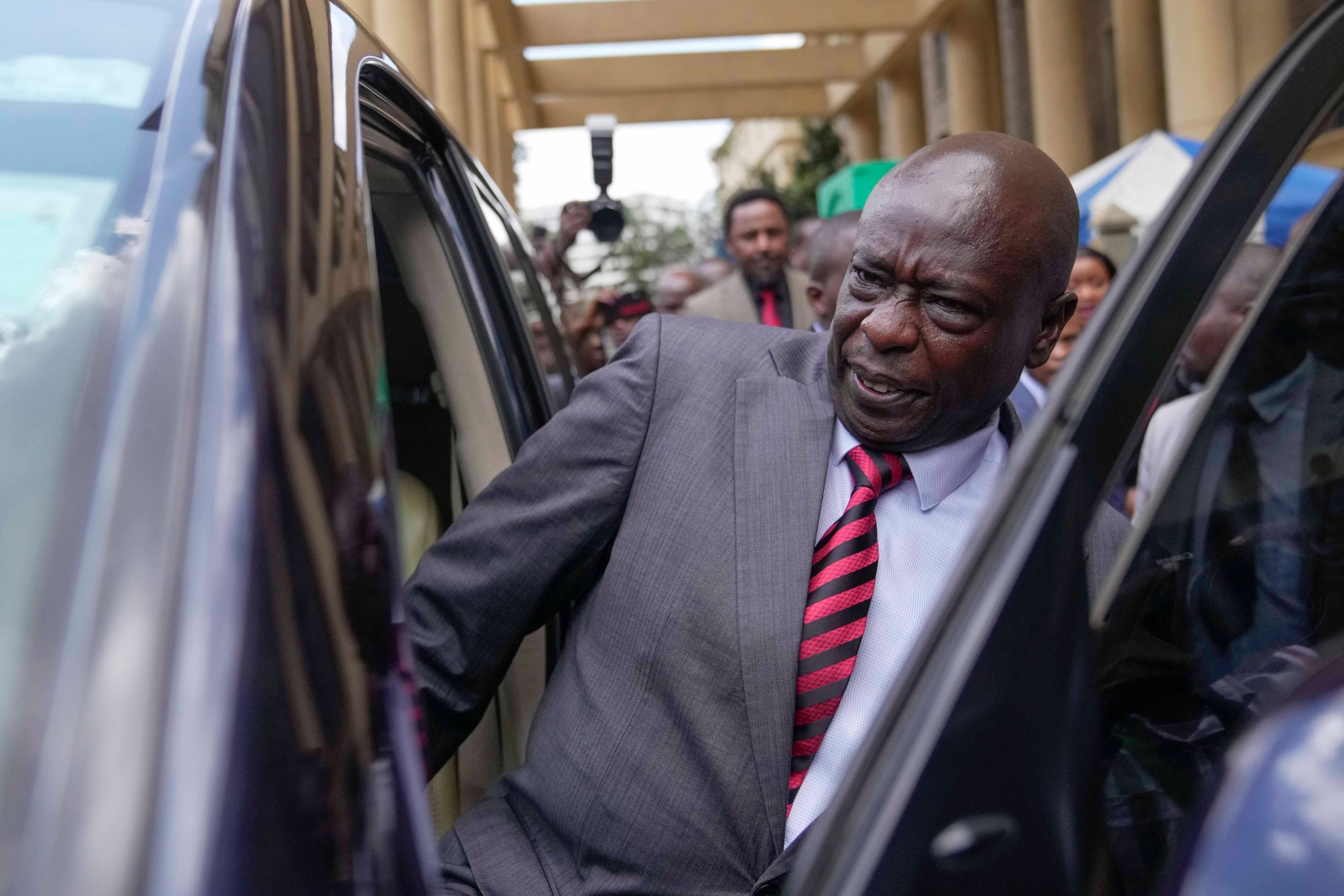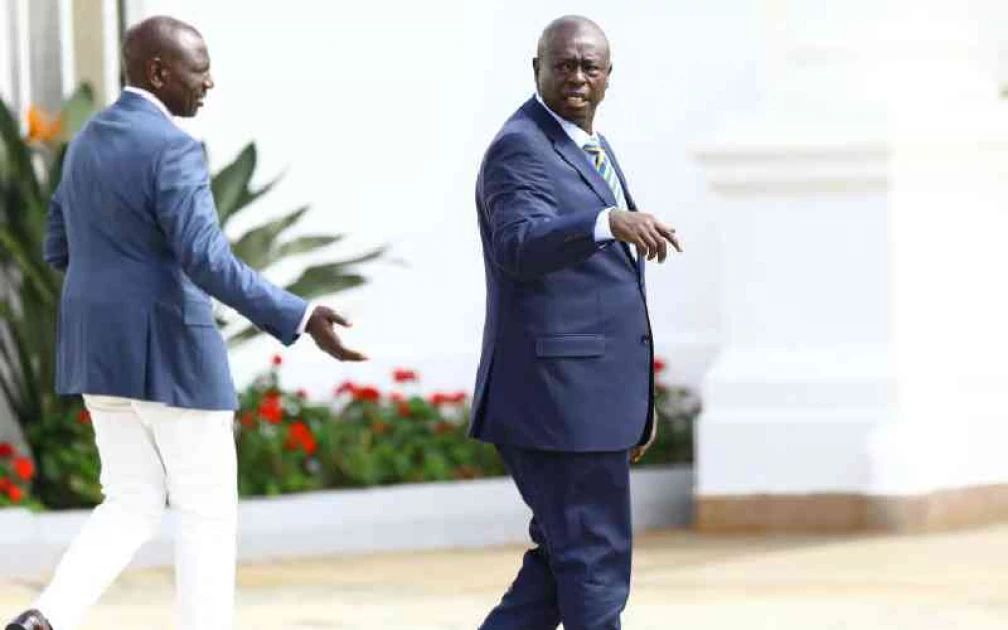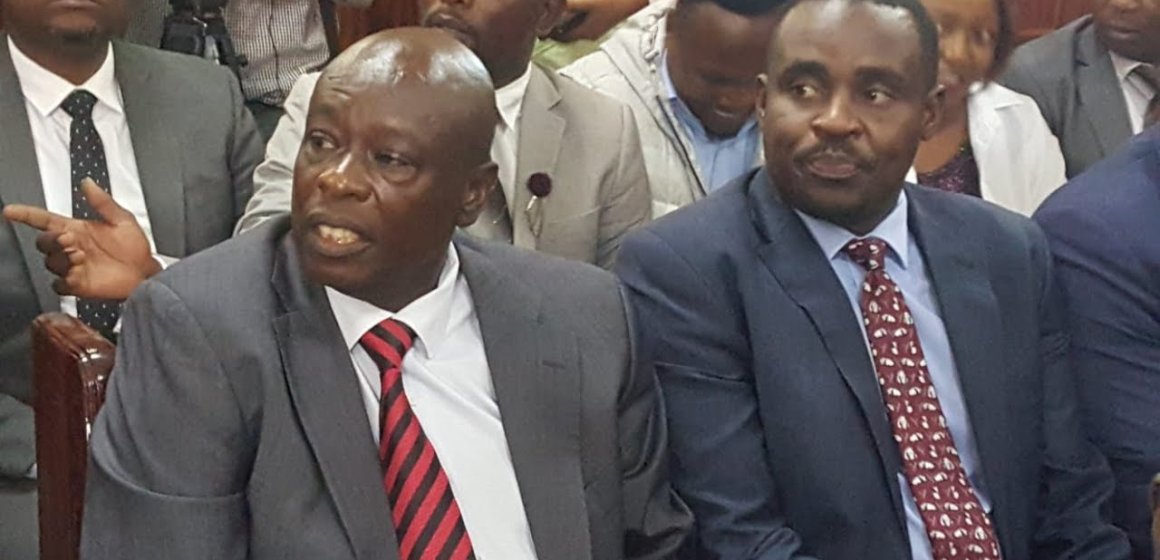|
LISTEN TO THIS THE AFRICANA VOICE ARTICLE NOW
Getting your Trinity Audio player ready...
|
Embattled Deputy President Rigathi Gachagua faced a critical legal hurdle Wednesday, October 23, as the High Court reaffirmed the authority of Deputy Chief Justice (DCJ) Philomena Mwilu in his impeachment process. This ruling reinforced Mwilu’s administrative role, allowing her to appoint a three-judge bench to preside over Gachagua’s impeachment case. The High Court ruling, delivered by Justices Freda Mugambi, Eric Ogola, and Antony Mrima, dismissed Gachagua’s challenge, which claimed only Chief Justice Martha Koome held the authority to form the bench.
Justice Mrima clarified that the constitution grants the DCJ the power to act on the Chief Justice’s behalf when necessary. He explained, “The DCJ’s function is to assist and deputize the Chief Justice, particularly in administrative matters. In this case, DCJ Mwilu was within her constitutional rights to appoint the three-judge bench to handle the impeachment proceedings.” Gachagua’s legal team had opposed Mwilu’s decision, arguing it overstepped her bounds, but the court maintained she acted within her mandate.
Adding another twist to the ongoing legal saga, President William Ruto’s lawyer, Kamotho Njenga, Thursday withdrew from the ongoing court case surrounding the impeachment of former Deputy President Rigathi Gachagua. Njenga’s decision came during a session before a three-judge bench led by Justices Eric Ogolla, Anthony Mrima, and Fridah Mugambi, marking a significant shift in the legal proceedings that have captured national attention.
Njenga informed the court that his legal team would no longer represent the President in the case, citing a Supreme Court ruling that bars the President from being involved in any legal proceedings, including those initiated by Gachagua. This ruling, which has far-reaching implications, underscored the legal limitations placed on the President’s involvement in civil cases.

“My Lord, with your kind permission, I wish to bring to the attention of the court that we shall no longer be acting for the sixth respondent in this matter. We have filed a notice to cease acting, based on the Supreme Court decision that determined that the President cannot be subject to civil proceedings,” Njenga told the court. His remarks were a reference to the legal precedent that prevents the head of state from engaging in personal legal battles while holding office.
Njenga further elaborated that their withdrawal was in strict adherence to the court order, arguing that to act otherwise would be to defy the law. “We will not be able to act contrary to an express court order, and we have therefore filed a notice to cease acting. We ask the court to accept this as sufficient notice that the sixth respondent is no longer represented in these proceedings,” he added.
The case, which centers on Gachagua’s impeachment, has been a contentious issue, with various political and legal implications. President Ruto’s involvement in the case had previously sparked debate, with some questioning the appropriateness of his legal team’s participation. Ruto had earlier contested the High Court’s jurisdiction over the matter, asserting that the case should have been referred to the Supreme Court for determination.
Through another of his lawyers, the President had argued that the petition was filed in the wrong court, describing it as an abuse of the legal process. “The petition herein has been filed in this Honourable Court in clear disregard of the law. It is an abuse of the due process of court and therefore cannot be entertained by this Honourable Court,” the legal documents read.

The case traces its roots to months of political friction and disputes within the government, particularly between Ruto and Gachagua, which eventually led to the latter’s impeachment. Gachagua, who had once been a close ally of the President, found himself on the receiving end of political fallout, sparking speculation about the internal dynamics of the administration. His impeachment, however, remains a hotly debated topic, with legal and political pundits closely following the proceedings.
Gachagua’s defense team further complicated the case, requesting the judges overseeing his impeachment to recuse themselves. The three-judge panel, comprising Justices Ogola, Mrima, and Mugambi, faces accusations of bias, with Gachagua’s lawyers arguing that each judge has close personal ties to prominent political figures, possibly affecting their impartiality.
The defense pointed to Justice Mrima’s connections with Senate Speaker Amason Kingi and Deputy President nominee Kithure Kindiki, alleging that Mrima’s attendance at a social event with these figures compromised his neutrality. Similarly, they noted that Justice Ogola’s wife holds a senior role at the Water Towers Agency, an appointment made during Ruto’s administration, suggesting a conflict of interest.
Veteran lawyer John Khaminwa, representing Gachagua, urged the judges to consider the integrity of the proceedings by stepping down. “If anyone is uncomfortable with you, please walk out. You are not the only judges who can preside over this matter,” he argued, pushing for a new panel to handle the case impartially. However, the bench did not immediately accede to these requests and instead allowed most of the contested statements to remain in the record, removing only a few specific references.
The defense’s argument met strong opposition. Attorneys representing the Attorney General, the National Assembly, and the Senate labeled the bias accusations as unfounded. Former Attorney General Githu Muigai defended the judiciary’s autonomy, arguing that “no law prevents judges from having associations with public figures.” Lawyer Eric Gumbo also contested the allegations, describing them as speculative and unsubstantiated.
The High Court set Friday October 25 as the date for deciding whether the judges will recuse themselves. Should the bench step down, the case could face delays, requiring a new panel to be appointed, which could impact Gachagua’s impeachment timeline. If the bench remains, the case will proceed, keeping Gachagua’s political future hanging in the balance as he continues this high-profile legal battle. The case has already drawn national attention.











LEAVE A COMMENT
You must be logged in to post a comment.